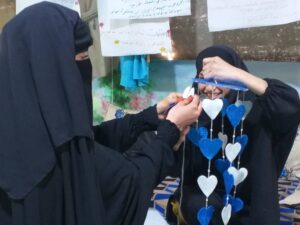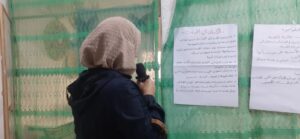Background
The Syrian Democratic Forces (SDF) played a crucial role in defeating ISIS in Syria, which has come at a grave human cost. In effect, Syria’s northeast, which is far from ethnically homogeneous, has come under Kurdish rule. Although the SDF and its political body, the Autonomous Administration of North and East Syria (AA/Rojava) are inclusive of ethnic and religious minorities, both are led by the Kurdish YPG and PYD party. With the liberation of eastern Syria from ISIS, Rojava’s administration cannot solely count on military legitimacy to rule over expansive swathes of land and diverse peoples. Legitimate governance will increasingly depend on delivering economic opportunity. Henceforth, economic inclusion would take precedence over physical security.
Moreover, geopolitics has defined Rojava and its complex web of relations with the Assad regime in Damascus, Turkey, the United States, the Iraqi government, and the Kurdistan Regional Government (KRG). With the uncertainty about its foreign relations, the PYD has maintained relations with the regime, on which it depends economically. Such complexities hinder economic activity. Often, trade and commerce bridge geopolitical gulfs. Rojava is rich in natural resources such as water, arable land, and petroleum. However, to transition from subsistence to growth, it would need to develop industry and trade.
Key points
As highlighted above, Rojava’s economic viability hinges on its ability to sustain the agriculture sector which employs the majority of workers outside the security and public sectors.
Sustainability and added value require establishing industries around the agriculture sector. Second, to tap into the region’s petroleum wealth, Rojava needs to attract foreign capital and technology to boost oil production and find a way to export the output. The export of oil and agricultural products requires trade relations, which has so far meant the rest of Syria and Iraq.
Trade with Syria is marred with uncertainty, and with Iraq and its Kurdish region by regional geopolitics. Internally, however, Rojava’s leadership has an opportunity to capitalize on the public resilience as well the equalizing role of military conscription to promote a healthy and vibrant private sector by creating an even business playing field. Crucial for the incubation of entrepreneurs is financial infrastructure and capital generation.
As the circumstances on the ground changed, the PYD has demonstrated significant political and administrative agility such as incorporating non-Kurds into its forces and renaming it the Syrian Democratic Forces. Such pragmatism is yet to be tested in the economic realm. It is rather unlikely, especially if the PYD proved to diligently adhere to Ocalan’s teachings, which espouses tenets of socialism such as state control of the economy and suspicion of the free market. The application of such doctrine is echoed in the early approaches to economic management in Rojava and the public statements of its leaders. “Notion of the common good, environmental justice, or other rationalizations to regulate commodities and large businesses is paradoxical [to] Öcalan’s embrace of grassroots-level democratization,” writes Michael Rubin, a scholar on the Kurds. Such an economic worldview would be unattractive to international donors and foreign capital, both of which Rojava’s administration needs to garner in order to spur reconstruction and growth. Communal and socialist approaches to the economy might win the hearts and minds of farmers and boost local agriculture, but without a law-based and market-friendly economic policy, Rojava would find it hard to attract the capital and technology needed to spur a diversified industry.
Moreover, as the SDF has become battle-tested with the war against ISIS, the Rojava Administration has had an opportunity to practice self-governance and reality-check some of the theories and notions it started with. As the war against ISIS has concluded, Rojava will increasingly be judged by its ability to govern. Hence, the more they invest in management skills and best practices as well as legal traditions that protect property rights and stymie corruption.


